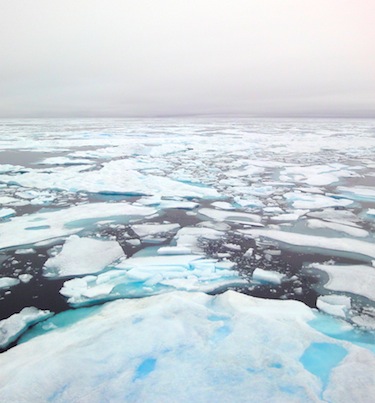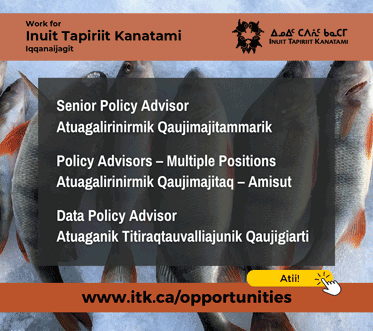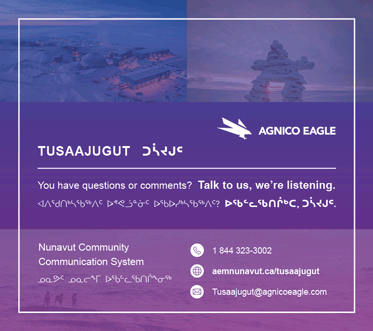COP21: Why are we leaving the Arctic out in the cold?
“The Arctic has remained largely off the table in over 20 years of climate negotiations”

Have global climate change negotiators ignored the Arctic over the past 20 years? (FILE PHOTO)
TAHNEE PRIOR and WHITNEY LACKENBAUER
In September, United States President Barack Obama followed in the footsteps of Stephen Harper, then the prime minister, and traveled north, becoming the first sitting U.S. president to cross the Arctic Circle.
He intended that his trip highlight the consequences of climate change for northern communities, for the North American environment, and for the rest of the world. Climate change is not a future problem: it is already real and affecting the Arctic. Most scientific research strongly supports this observation.
Accordingly, it seems bizarre that the circumpolar Arctic — spanning Canada, the U.S., Russia, Finland, Sweden, Norway, Iceland, and Denmark (through Greenland) — has remained largely off the table in over 20 years of climate negotiations. Why are we leaving the Arctic out in the cold?
For over a decade, scientific assessments and reports have revealed rapid environmental change in the northern latitudes of the planet. The 2004 Arctic Climate Impact Assessment, published by the Arctic Council, highlighted that the Arctic is warming at almost twice the global average rate.
Both the 2007 and 2014 reports from the International Panel on Climate Change, a scientific body operating under the United Nations, reported that the Arctic shows strong evidence of “ongoing impacts of climate change on terrestrial and freshwater species, communities and ecosystems.”
More recent studies indicate that these changes will continue — and will amplify. Reports by international organizations like the World Bank and non-governmental organizations like the World Wildlife Fund echo this sentiment, lamenting the loss of Arctic sea ice and the increasing vulnerability of Arctic communities.
More than a decade after an “Inconvenient Truth,” popular media is finally waking up to Arctic climate change as the most acute challenge facing the region — not overblown rhetoric about sovereignty threats or an alleged race for Arctic resources and new shipping lanes.
After nearly a decade of Canada being dubbed a climate laggard and denigrated for muzzling federal scientists on Arctic research, all eyes are on Canada and Prime Minister Justin Trudeau and his delegation in Paris.
World leaders are set to finalize a new framework for climate cooperation at the 21st Conference of the Parties of the United Nations Framework Convention on Climate Change, or COP21.
All countries, including Canada, are expected to outline their national contributions to the reduction of greenhouse gas emissions and to climate adaptation. While both issue-areas will inevitably impact the Arctic, the official negotiating text of COP 21 fails to actually reference the region.
This is problematic. The Arctic is our planet’s barometer and changes to the Arctic Ocean feed back into global systems, influencing ocean currents, global precipitation patterns, sea levels, and many other other phenomena. This must be acknowledged explicitly.
There are certainly barriers in existing climate negotiation processes. There is no regional focus, for example, and the distinction between industrialized and developing nations relegates the Arctic to the domestic policy level.
Accordingly, Arctic states are best positioned to highlight lessons learned and to articulate opportunities for action when it comes to places like the Canadian North.
Despite Canada’s significant contributions to internationally-coordinated scientific assessments and Arctic Council projects on adaptation to climate change, it has translated little into international negotiations dedicated towards global mitigation. One would also expect that Canada’s North — which encompasses more than half of our country — should receive mention in our Climate Action Plan — a document produced by the Conservatives — ahead of COP21.
It does not. During our two-year Arctic Council chairmanship between 2013 and 2015, Canada in fact chose to suspend the council’s long-standing practice of delivering an oral ministerial statement at international climate negotiations. This decision is problematic, again limiting the visibility of the Arctic on a global scale.
In our public narrative, the Arctic is as much a “canary in the coal mine” as it is a frontier for new economic opportunities. It is a region that some people seek to exploit, others seek to conserve and, most importantly, that many call home.
With pressing issues like high suicide rates or access to clean running water, climate change might not always be a top priority amongst Northerners. Yet it is important that we focus on climate changes precisely because it drives large-scale and long-term change that can intensify such vulnerabilities.
While northern peoples have historically adapted to environmental change, the rate at which it is taking place today outpaces the necessary modifications to our social systems and infrastructure.
Declining Arctic sea ice and rising sea levels are already forcing the relocation of Indigenous communities in Alaska. In the Canadian North, changing ice conditions are impeding access to hunting grounds and affecting food security.
The Arctic is tightly linked with the rest of the world. Inuit and other northerners face the challenges of living on the front lines of climate change. Our new government, and our new minister of the Environment and Climate Change, is well-positioned to speak to the work that Canada is prepared to do when it comes to dealing with climate change.
We can highlight the successes and challenges of adapting to climate change by drawing specific attention to the Arctic and to the world-class scientific research that we have produced there.
And COP21 is a chance for Canada to return from the cold, resuming our role as a good international citizen committed to mitigation efforts and explaining to the world how our Arctic responsibilities are inextricably linked to global processes. An invitation from Catherine McKenna, the environment and climate change minister to Herb Nakimayak, the vice president of the Inuit Circumpolar Council, to participate as a part of Canada’s official delegation at COP21 is only the first step.
Tahnee Prior is a 2015 Trudeau Scholar, Vanier Canada Graduate Scholar, and a PhD candidate at the Balsillie School for International Affairs. Whitney Lackenbauer is a professor of history at St. Jerome’s University in the University of Waterloo.





(0) Comments